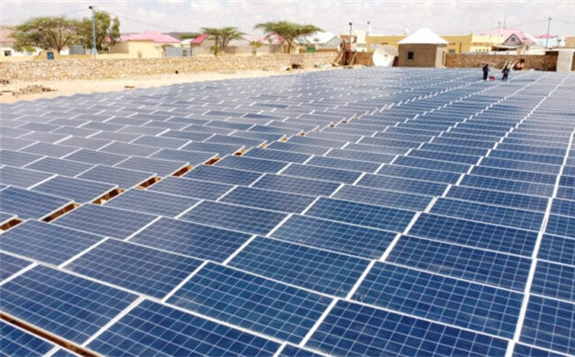The World Bank's Board of Directors has approved a $500 million loan to Ethiopia. The funds allocated by the International Development Association (IDA) will help accelerate Ethiopia's electrification process. The Ethiopian government is focusing on extending and strengthening the national electricity grid in the country's major cities. Off-grid solutions are favoured in rural areas.

The Ethiopian Ministry of Water, Irrigation and Power has funds available to implement its Access to Distributed Electricity and Lighting in Ethiopia (ADELE) project. The $500 million financing was recently provided by the International Development Association (IDA), a subsidiary of the World Bank Group. The loan is intended to accelerate the ADELE project as demand for electricity increases in Ethiopia.
The ADELE project is a component of Ethiopia’s National Electrification Programme (NEP), which aims to move from infrastructure development to the provision of adequate, reliable and affordable electricity services, with the objective of achieving universal electrification by 2025. The Ethiopian government has entrusted the implementation of the country’s largest electrification project to the Ethiopian Electric Utility (EEU). The financial part of the ADELE project is managed by the Development Bank of Ethiopia (DBE).
Network expansion in Ethiopian cities
The Ethiopian authorities’ strategy for accelerating the country’s electrification revolves around two axes. The first is the extension of the national electricity grid in urban areas. According to the authorities, this component will improve the reliability of electricity generation and distribution in the capital Addis Ababa and 10 other regional capitals, where deficiencies in terms of availability, quality and reliability of electricity supply are significant.
In large and growing cities such as Addis Ababa, where electricity access is 99%, the government will focus on the efficiency of generation and distribution facilities, as well as the operational efficiency of its public enterprises. Between 2019 and 2020, the EEU estimated that the average annual transformer failure rate in Addis Ababa was about 3% and the frequency and duration of medium voltage line interruptions were 882 and 2,103 hours respectively.
According to the World Bank, the Access to Electricity and Lighting project in Ethiopia will address the need for grid reinforcement to achieve higher reliability, quality and duration of power supply, allowing consumers to enjoy the full benefits of the utility. In Addis Ababa, the project will improve power supply reliability by reducing transformer outages to 2% and improving the frequency and duration of medium voltage line interruptions by 26% and 27%, respectively. In the 10 regional capitals, transformer outages will be reduced by about 3% to 2%. The frequency and duration of outages will be improved by an average of 45% and 50%, respectively.
Developing off-grid solutions in rural areas
“With the goal of providing electricity services to nearly 5 million people, 11,500 businesses, and 1,400 health and education facilities, the project represents the World Bank’s continued support to the Ethiopian government’s CIP and aligns with our commitment to support Ethiopia’s resilient recovery from the Covid 19 pandemic. It is also an important step towards improving service delivery and addressing factors of fragility and conflict,” says Ousmane Dione, the World Bank’s Country Director for Ethiopia.
Like other African countries, Ethiopia will rely on off-grid to accelerate rural electrification. The Ethiopian government plans to deploy solar mini-grids and battery storage with diesel generators. According to the plan endorsed by the World Bank, hybrid solar mini-grids will be deployed for rural economic development; solar home systems for households, small-scale farmers and small businesses; and other stand-alone solar systems for health and education facilities.
The Ethiopian government is taking two approaches to the deployment of mini-grids in rural areas. The EEU will receive US$217 million for the installation and operation of solar hybrid mini-grids. As in Nigeria, private mini-grid providers will get performance-based grants (PBGs) to support Addis Ababa in its strategy to achieve universal access to electricity by 2025. The task is huge, as Ethiopia’s current electricity access rate is 60% according to the World Bank.
This article is reproduced at www.afrik21.africa